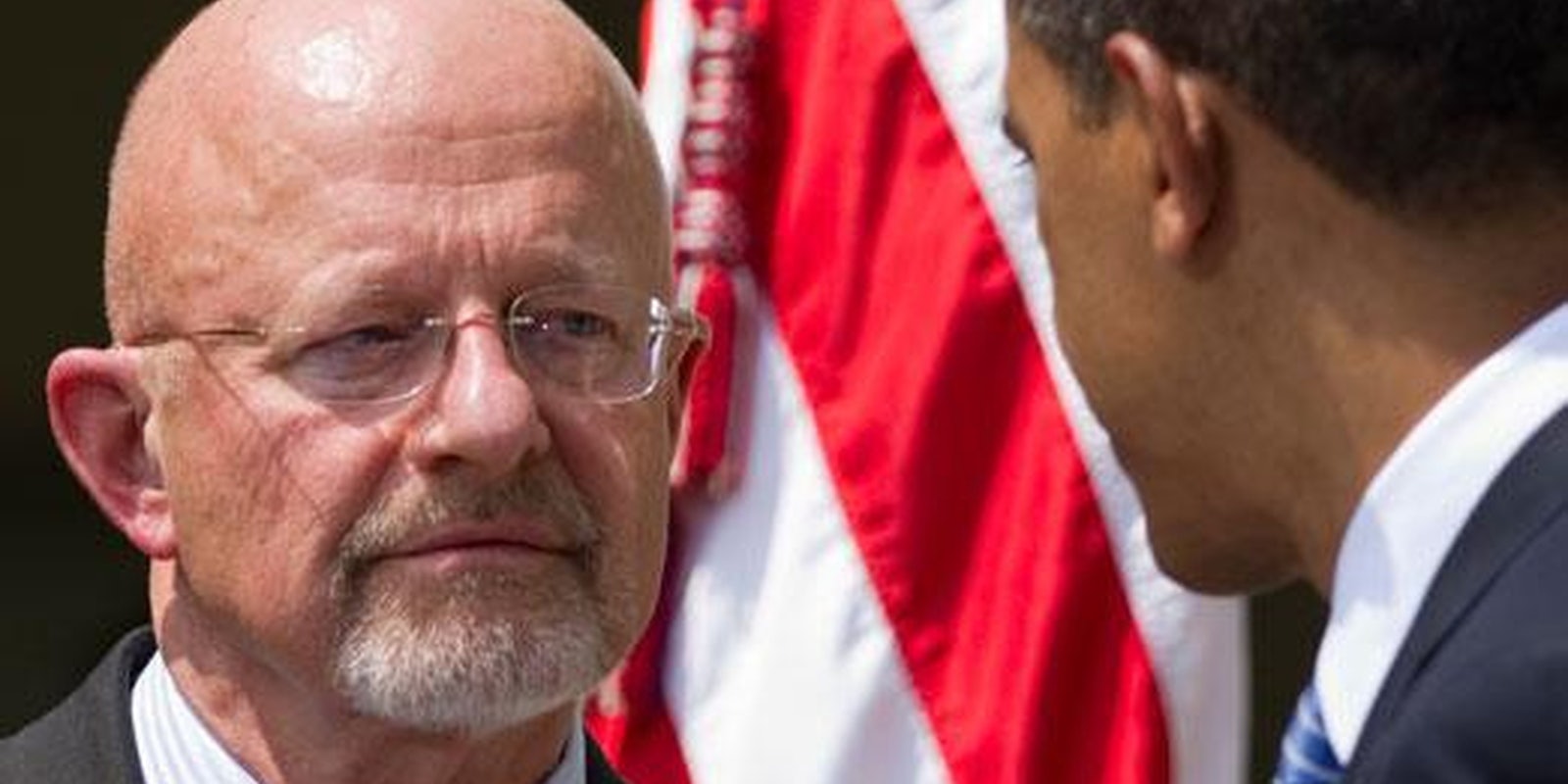Director of National Intelligence James Clapper, a man who’s had the onerous task of defending controversial National Security Agency domestic spy programs, now admits that it was a mistake to keep those programs secret in the decade following 9/11.
In an interview with the Daily Beast, Clapper continued to defend the agency’s dragnet Internet and cell phone data-gathering operations that grew out of the special powers granted by section 215 of the Patriot Act. However, he said it was a mistake to classify the programs for so long, saying the American people and congress should have been entrusted with the knowledge of its government’s actions.
“I probably shouldn’t say this, but I will. Had we been transparent about this from the outset right after 9/11 – which is the genesis of the 215 program – and said both to the American people and to their elected representatives, we need to cover this gap, we need to make sure this never happens to us again, so here is what we are going to set up, here is how it’s going to work, and why we have to do it, and here are the safeguards … We wouldn’t have had the problems we had,” Clapper said.
This is a stunning admission from Clapper who, since NSA domestic and international spying programs were first revealed, has stood by them. Clapper has denounced the actions of former NSA contractor Edward Snowden, who began leaking details about agency operations to the public starting last June. In the past, Clapper has said that Snowden’s actions “will do significant damage to the intelligence community’s ability to protect the nation.” (Clapper likely still stands by this comment, since Snowden released greater detail about the program than the spy chief would have liked.)
But Clapper cannot deny the damage that has been done by shielding NSA activities from the public for so long. He compared it to other post-9/11 safety precautions like enhanced airport security, saying the public likely would have gone along with the program if they’d been informed.
“What did us in here, what worked against us was this shocking revelation,” he said. “I don’t think it would be of any greater concern to most Americans than fingerprints. Well people kind of accept that because they know about it. But had we been transparent about it and say here’s one more thing we have to do as citizens for the common good, just like we have to go to airports two hours early and take our shoes off, all the other things we do for the common good, this is one more thing.”
As the Daily Beast points out, Clapper has worked to declassify “reams of material related to the 215 program,” since Snowden went public last year. But this is the first time he has publicly and candidly shared his thoughts on the government’s secretive approach overall.
Clapper’s attitude toward the NSA leaks is similar to that of President Barack Obama, who sees them as a catalyst for reform and transparency while still publicly condemning Snowden’s actions. In a speech last month outlining modest changes to NSA data-gathering, Obama said that government employees entrusted with sensitive information can’t be allowed to expose that information just because they object to it.
Though NSA critics like Ben Wizner, a legal advisor to Snowden and the director of the American Civil Liberties Union’s Speech, Privacy and Technology Project, agree with Clapper that there should have been more transparency, he disagreed with the intelligence director’s assumption that the American people would have assented to dragnet surveillance procedures.
“If Clapper is suggesting that the American people should have been consulted before the NSA engaged in a mass phone call tracking program, I emphatically agree,” Wizner told the Daily Beast. “Whether we would have consented to that at the time will never be known.”
In addition to the fervent debate over national security versus privacy rights sparked by the Snowden leaks, Clapper has directly faced criticism for his own efforts to keep data-gathering programs a secret. In June, Clapper apologized to Congress for earlier testimony in which he lied about the NSA collecting the phone records of U.S. citizens.
Photo via cvrcak1/Flickr


